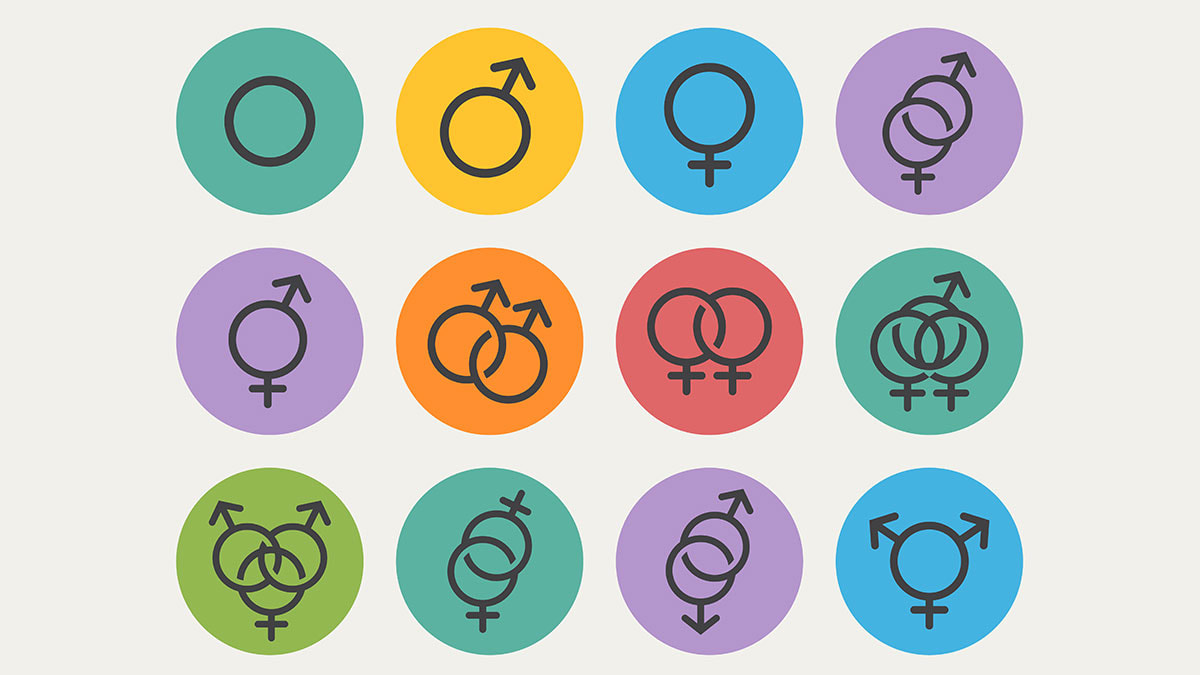Is sexual orientation determined by nature or acquired?
Definition of sexual orientation
Sexual orientation is an inner mechanism that can guide a human individual's sexual physiology, psychology, and behavior to varying degrees to female, male, or bisexual tendencies; the physical, behavioral, and psychological characteristics displayed by the individual can be used as sexual orientation. The judgment index of orientation is specifically manifested as the individual's sexual desire, love, attraction, sexual arousal, sexual fantasy, sexual behavior and other characteristics towards the opposite sex, the same sex or both sexes; based on the individual's physiological, behavioral and psychological reactions to objects of different genders, Sexual orientation can be divided into: heterosexual, homosexual, and bisexual.

Professor Cook summarized in the literature that the causes of sexual orientation can be considered from the following aspects:
Genetics, Hormones, The non-social environment, and Social environment. Next, we will discuss the causes of sexual orientation from these four aspects one by one.
Hypothesis 1 on the causes of sexual orientation: Genetics
Experiments on identical and fraternal twins: Genes are not the only cause of sexual orientation. Among the genetic hypotheses on the causes of sexual orientation, the most influential experiment came from Scott L Hershberger, a professor of psychology at the University of Kansas in the United States in 1997. A study of monozygotic twins was published in the Journal of Sex Research in 1997.
The logic of this experiment is that identical twins have the same genes. If genes are the only factor causing differences in sexual orientation, then two people with the same genes should have the same sexual orientation, which means that the consistency rate of sexual orientation should be 100%. .
Research results from Professor Hershberger show that among identical twins, the probability that one of them is gay and the other is also gay is 20-25%. In other words, two twins with identical genes do not have the same sexual orientation. This shows that genes are not the only factor affecting sexual orientation.
In subsequent studies, many experiments used identical twins and fraternal twins (dizygotic twins, who share 50% of the same genes) for comparison. In many experiments, the overall results obtained by psychologists show that identical twins have a higher rate of consistent sexual orientation than fraternal twins; on average, 24% of identical twins and 15% of fraternal twins have the same sexual orientation. . That is, genes are partly responsible for the causes of sexual orientation.
To sum up, the experiments on identical and fraternal twins prove that genes do have an impact on sexual orientation, but they are not the only influencing factor.
Hypothesis 2 on the causes of sexual orientation: Hormones
The level of androgens affects sexual orientation. Professor Christopher C. H. Cook summarized: Sexual characteristics of the human body are affected by hormones during early development of the human body, especially during the development period of the fetus in the mother's womb (intra-uterine). Some of these effects are reversible, and some are reversible. is irreversible. Experiments show that among these irreversible effects are changes in the brain that lead to different sexual orientations.
Specifically, androgens have an important impact on sexual characteristics and sexual orientation:
Women with higher androgen levels have a higher rate of homosexuality; during certain critical developmental periods, androgen levels affect brain development, causing the brain to respond to sexual attraction and sexual behavior. If the androgen content is at an atypical level, it may cause the brain to have different sexual tendencies towards gender objects, resulting in different sexual orientations.
Hypothesis 3 on the causes of sexual orientation: The non-social environment
In utero influence: The youngest boy in the family has a higher proportion of homosexuality. Professor Christopher C. H. Cook analyzed that the factor that has the greatest impact on sexual orientation in the family environment is the boy’s birth order effect (fraternal-birth-order effect), which is due to the fact that the child is born in the mother’s body. caused by effects in the womb. Research shows that the youngest boys in the family with multiple older brothers are more likely to be gay.
Reason analysis: The reason why H-Y antibody levels affect male brain development can be explained from immunology. When a mother is pregnant with a boy, certain male-specific antigens on the boy's Y chromosome - H-Y antigens - trigger the mother's immune response. This immune response is triggered when the mother is first pregnant with a boy. If she continues to conceive a boy later, the level of H-Y antibodies will gradually increase due to the stimulation of the H-Y antigen. Therefore, if a mother gives birth to multiple boys, the youngest boy will have the highest H-Y antibody levels in the womb, and H-Y antibody levels will affect male brain development, leading to an increased rate of homosexuality; but this does not include the same mother. Father's brother.
To find similar joy, you can connect with friends on the lesbian dating app.
Hypothesis 4 on the causes of sexual orientation: Social environment factors
Numerous psychological studies have proven that acquired social environmental factors have no impact on sexual orientation. Professor Christopher C. H. Cook explained that many people believe that the environment in which children grow up leads to differences in sexual orientation. For example: boys are raised as girls and girls are raised as boys. But in fact, research has proven that changes in these upbringings do not lead to changes in sexual orientation.
Summary: Is sexual orientation innate or acquired? Can it be changed?
Is sexual orientation innate or acquired? "Nature and nurture" (nature and nurture) have always been the most hotly debated topic about the causes of sexual orientation. From a scientific and objective perspective, this article is based on the current interpretation of the most cutting-edge research results in the academic community. We can find that the causes of sexual orientation should be considered from innate factors. Regardless of sexual orientation, we should not discriminate against the minority of non-heterosexuals just because heterosexuals are the majority, nor should homosexuality and bisexuality be regarded as mental illnesses.
To find similar joy, you can engage in lesbian live chat on Lespark.
















